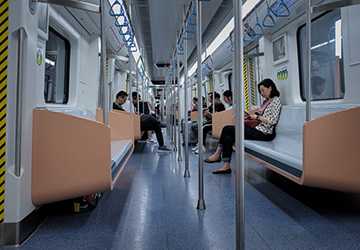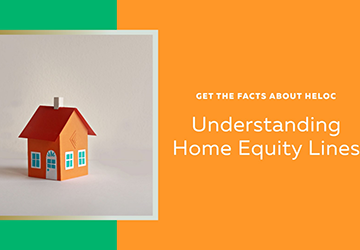Pros and Cons of Fixed vs. Variable Rate Mortgages
When choosing the right mortgage for your home, understanding the differences between fixed and variable mortgages is essential. This decision can have long-term financial implications, impacting how much you pay each month and over the life of the loan.

This article discusses the fixed vs. variable mortgage debate, outlining the pros and cons of fixed-rate mortgages to help you make an informed choice.
Understanding Fixed and Variable Rate Mortgages
A fixed-rate mortgage features an interest rate that remains constant throughout the loan term. This consistency lets homeowners know their monthly mortgage payments strictly, making budgeting straightforward and predictable.
On the other hand, a variable-rate mortgage (often called an adjustable-rate mortgage or ARM) has an interest rate that can change periodically based on an index or benchmark rate.
Fixed Rate Mortgage Pros
Predictable Payments
One of the most significant pros of fixed-rate mortgages is the stability and predictability of monthly payments. Homeowners can rest easy knowing their mortgage payments will not change, making planning and budgeting easier.
Protection against Interest Rate Increases
Another notable advantage is the protection against rising interest rates. Even if market interest rates climb, your fixed-rate remains the same, saving you substantial money in the long run and providing financial security.
Simplicity and Peace of Mind
Fixed-rate mortgages are straightforward to understand. You don't have to worry about the complexities of how changing rates might affect your payments, which can reduce stress and give you peace of mind.
Easier Qualification
Because fixed-rate mortgages are considered less risky for lenders, borrowers may find it easier to qualify for these loans. If you have a stable income and good credit, a fixed-rate mortgage might be more accessible.
Variable Rate Mortgage Cons
Uncertainty and Unpredictability
One of the primary cons of a variable-rate mortgage is the uncertainty associated with fluctuating interest rates. As rates increase, so will your monthly payments, which can make it difficult to budget and potentially lead to financial strain.
Potential for Higher Costs over Time
While variable-rate mortgages often start with lower interest rates than fixed-rate mortgages, these rates can increase significantly over time. If market rates rise, your mortgage payments can become much higher than initially anticipated, possibly exceeding what you would have paid with a fixed-rate mortgage.
Complexity
Variable-rate mortgages have various terms, caps, and adjustment periods that can make them more complex and challenging to understand than fixed-rate mortgages. This complexity can lead to confusion and unexpected financial burdens.
Risk of Payment Shock
Payment shock is a significant risk with variable-rate mortgages. It occurs when your mortgage payment rises sharply due to an interest rate increase, and it can be financially devastating if you're not prepared. This potential for drastic payment changes is a significant downside.
Situational Considerations
Consider your financial situation, plans, and risk tolerance when comparing fixed vs. variable mortgages.

Fixed Rate Mortgage Considerations
If you plan to stay in your home for many years, a fixed-rate mortgage can offer the stability and predictability you need. The fixed-rate mortgage pros, such as predictable payments and protection against rate hikes, make it an excellent choice for long-term homeowners.
If you prefer stability and want to avoid the risk of increasing payments, the pros of a fixed-rate mortgage far outweigh the cons. The peace of mind provided by knowing your monthly payment won't change is invaluable.
Variable Rate Mortgage Considerations
A variable-rate mortgage might be advantageous if you sell or refinance before the adjustment period. The initial lower rates can be appealing, but the variable rate mortgage cons become more significant if you stay home long-term.
Borrowers knowledgeable about market trends and willing to take calculated risks might benefit from a variable-rate mortgage. A variable-rate mortgage could save you money if interest rates remain low or decline.
Hybrid Mortgage Options
Hybrid mortgages offer a middle ground for undecided between a fixed and variable mortgage. These loans start with a fixed interest rate for a specified period (typically 3, 5, 7, or even ten years) before switching to a variable rate. This initial period of stability can be beneficial, followed by the potential for lower rates later on, depending on market conditions.
Hybrid mortgages, or hybrid adjustable-rate mortgages (ARMs), combine elements of fixed and variable-rate mortgages. The interest rate is locked in during the initial fixed period and does not change. Depending on the loan terms, this period can range from a few years to a decade. Standard options include 3/1, 5/1, 7/1, and 10/1 ARMs, where the first number indicates the fixed-rate period in years, and the second number indicates how often the rate adjusts afterwards.
After the fixed period ends, the interest rate adjusts regularly based on an index plus a margin. For instance, in a 5/1 ARM, the interest rate will change annually after the initial five years.
Conclusion
When deciding between a fixed vs variable mortgage, consider your financial situation, plans, and risk tolerance. If you value stability and predictability, the pros of a fixed-rate mortgage make it a compelling option. However, a variable-rate mortgage might be suitable if you are comfortable with some risk and plan to take advantage of lower initial rates, variable r
ating your needs and the current market conditions; you can make an informed decision that aligns with your long-term financial strategy. Understanding the pros and cons of fixed vs. variable mortgages is essential for making a choice that best supports your homeownership journey.





